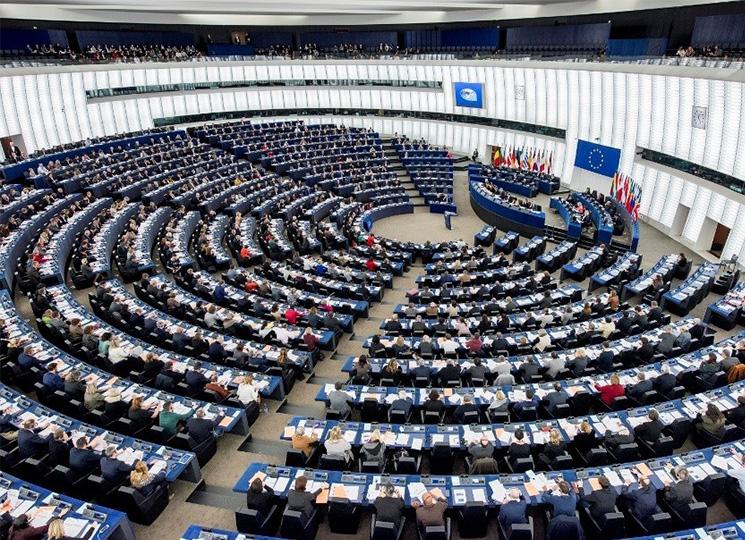The Cyprus presidency has entered the EU transparency battlefield.

In an earlier post on this blog, I commented how the Danish presidency, in a race against the clock in the final weeks of June, failed to find a compromise on the transparency reform dossier that found sufficient support among both the member states and the European Parliament. (The latter having shown, over the years, much assertiveness in the area of what is known among lawyers as constitutional law, and among political scientists as oversight or meta-regulation.) The Danes failed miserably – its draft proposals for either a medium- and a light-version of a reformed Transparency Regulation were torpedoed and were criticised by transparency-friendly parties as a sell-out.
As of 1 July, Cyprus has taken over the presidency. From the early start, the Cypriots have shown a keenness to revive the talks and to start a fresh search for political compromise. A team under the experienced (and nicely-named) Cypriot senior diplomat Dionysis Dionysiou has enbarked on a new reconnaissance mission in bilateral talks to gauge the temperature among the various parties involved, bothinside among the Council members, and outside among the co-legislating EP and groups from civil society.
The reform procedure of the Transparency Regulation has become widely viewed as a headache dossier that has been haunting the EU for over four years now, and which stumbles from deadlock to deadlock with apparently no resolve. Highly motivated pro-transparent presidencies such as Sweden and Denmark have been unable to reach compromise, while the EP’s rapporteur Cashman has chosen a hard line. Then why would Cyprus stick its neck out at this time, with so many other pressing issues to attend to?
There are several possible answers to this question. One, which was recently espoused at the Transparency Conference in Utrecht by dr. Stefanie Novak of the Hertie School of Governance, looks in the direction of institutional reflexes. As she argues, member state presidencies are competitive rent-seeking ventures, in which the number of proposals passed are the central criterium. Cyprus might therefore simply seek to move a reformed Transparency Regulation along in order to add one more point to its scoreboard.
Highly motivated pro-transparent presidencies such as Sweden and Denmark have been unable to reach compromise. Why would Cyprus stick its neck out at this time, with so many other pressing issues to attend to?
Another possibility is the legal issue of the Lisbon Treaty which has entered into force at the end of 2009, in the middle of the reform negotiations. Lisbon formalises a number of arrangements that were already de facto put in place, and added a number of new provisions. The current Regulation that facilitates access to Community documents, Regulation 1049/2001, must at least be alligned with this new “constitutional” reality. This is not a matter of hurry – Regulation 1049/2001 was also put in place after the deadline stipulated in the Amsterdam Treaty. But now that months have turned into years, and more years, this incongruence might become less tenable. Indeed, discussion is already beginning to erupt over the question whether certain provisions in the Lisbon Treaty relating to transparency should be read as direct, rather than indirect, rights. Unsurprisingly, certain MEPs argue for the former, while the Council and Commission take the latter position.
Finally, there is some merit in an explanation of popular politics. Cyprus might want to seek to be the hero of the day in front of the European citizenry, breaking through the longstanding stalemate, thereby reviving European democracy and improving its own popular image. That the EU widely disgruntles its citizens in many of its member states is no longer a secret, and the irresolutely handled and costly financial crisis only worsens this facts. The EU is often portrayed as distant, technocratic, and, where it is involved in national decision-making, as awkwardly intrusive. If Cyprus perceived the opportunity of being with the good guys in this story, it might want just want to give it a go.
That the EU widely disgruntles citizens in many of its member states is no longer a secret, and the irresolutely handled and costly financial crisis only worsens this facts.
Nevertheless, it remains to be seen whether Cyprus will get beyond the point where the Swedish and Danish initiatives tripped over. Access Info Europe, a Madrid-based NGO advocating more transparency across the EU, has issued a lukewarm statement, pointing at the fact that Cyprus cannot draw from national experience since it doesn’t have a transparency law itself. As it holds
It remains to be seen whether this will be an asset or a liability throughout the negotiations, or whether it could provide an opportunity for Cyprus to improve transparency at the national level.
Feel free to guess how Access Info Europe feels about it. It further reports that the next presidency, that of Ireland, is already kept in the loop in the eventuality a compromise is not reached over the coming months. Thus, the European transparency epos continues. To be followed with interest.


